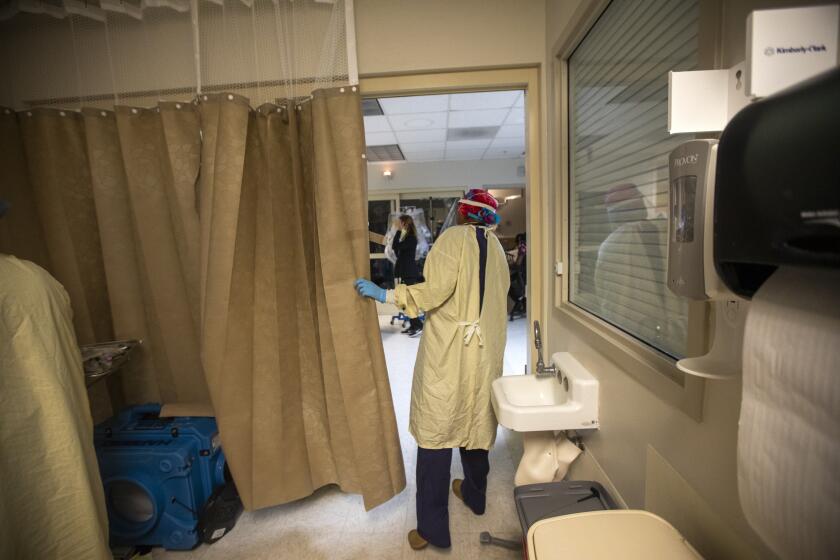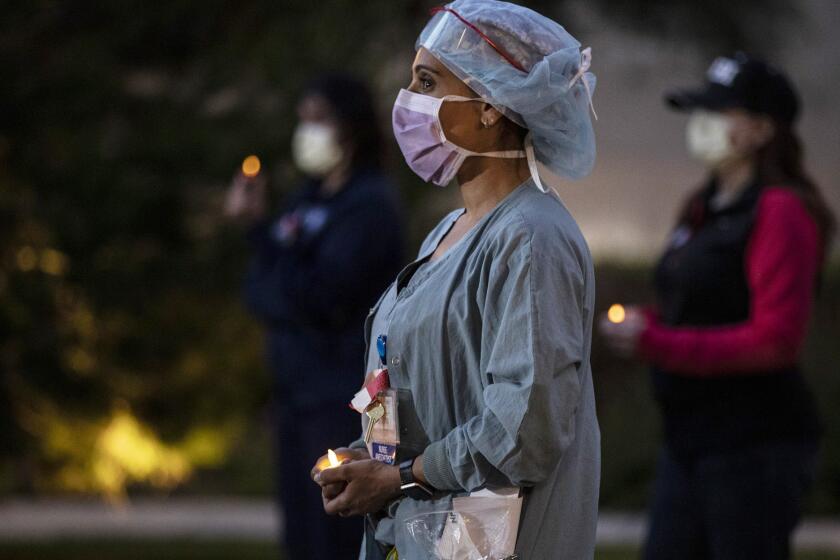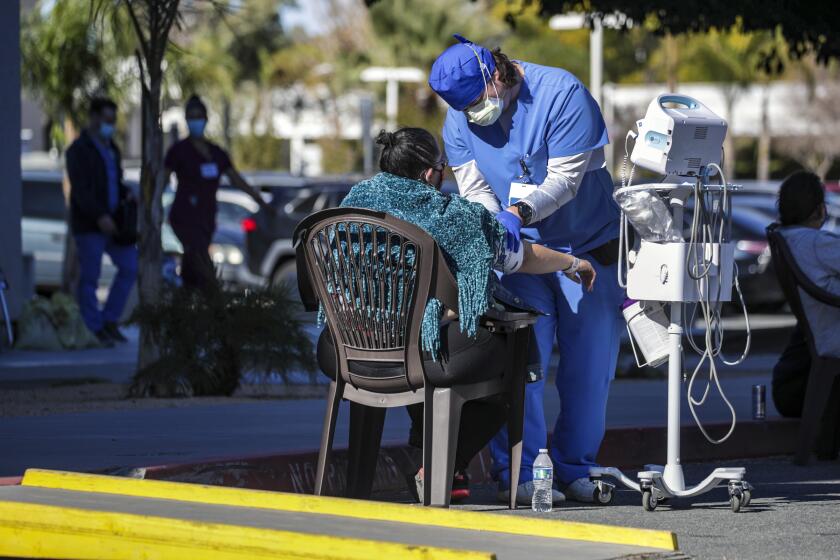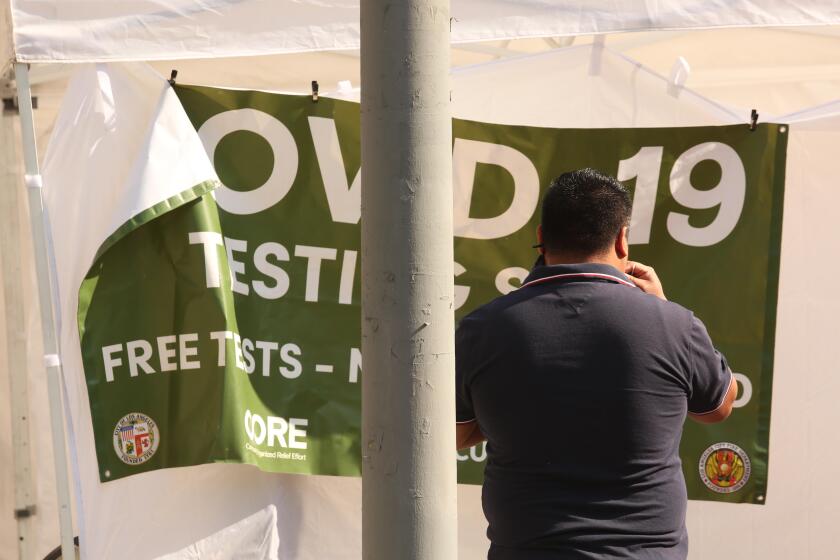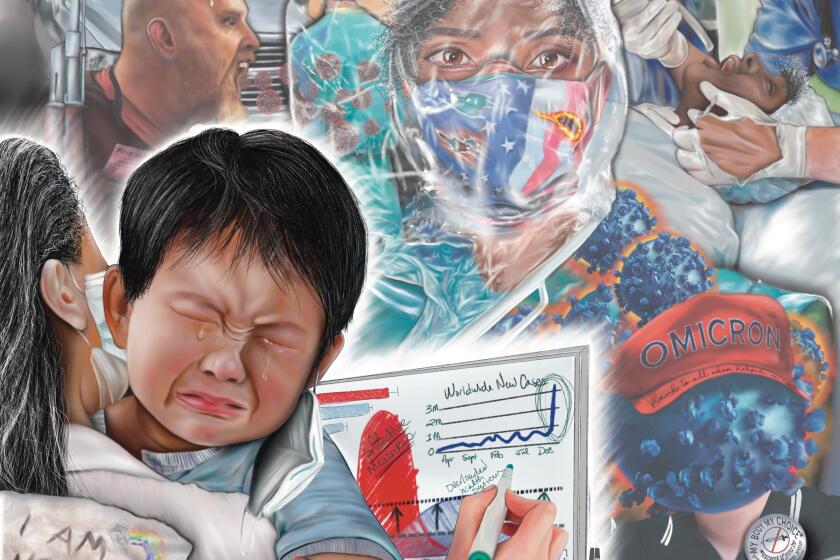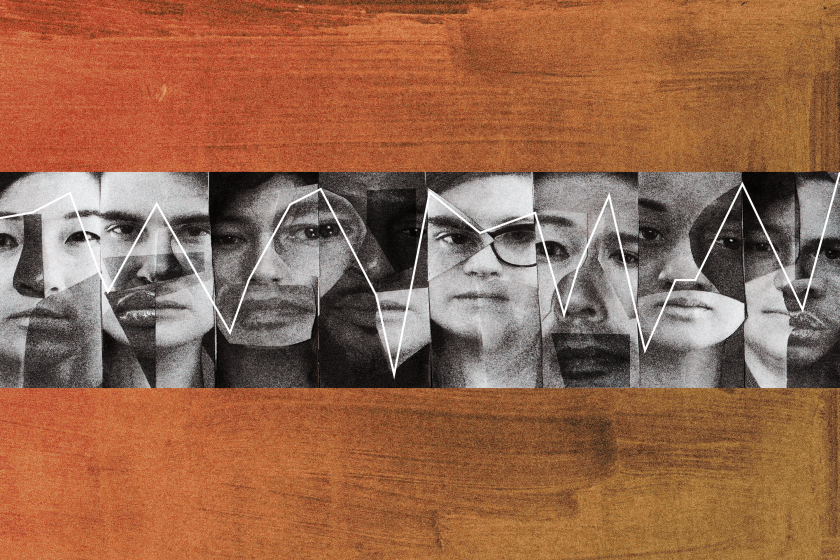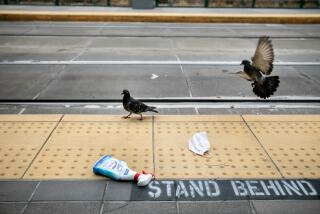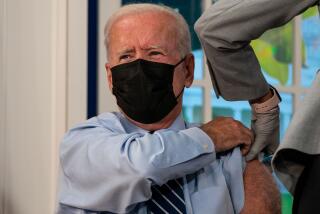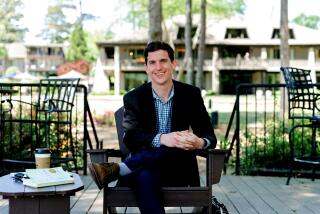Op-Ed: Anti-vaccine patients vent anger on healthcare workers like me. It takes a toll on care
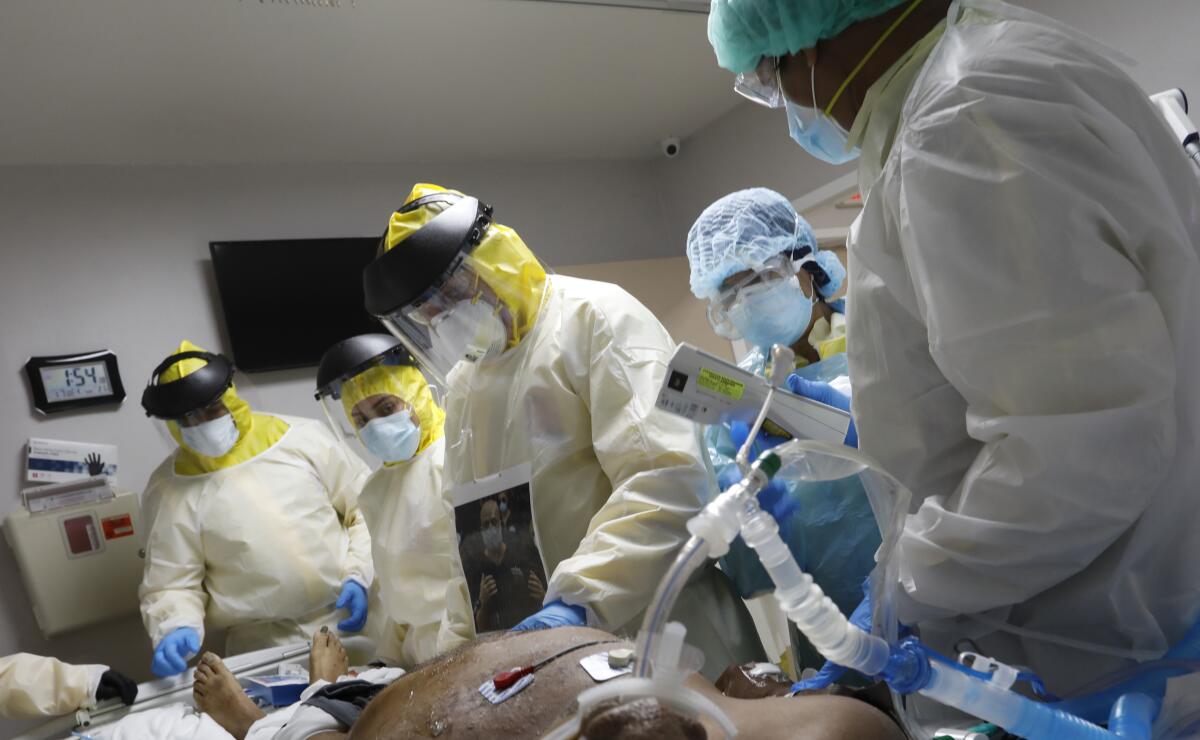
As a pulmonary and critical care physician in Southern California treating hospitalized patients with COVID-19, I am noticing a rising tension. Beyond just being overwhelmed, we are now part of the collateral damage.
I recently asked a security guard to accompany me and an ICU nurse to meet the family of an unvaccinated 42-year-old firefighter who refused to accept that COVID-19 caused his respiratory failure. Adamantly refusing intubation despite worsening over weeks, it was only when his oxygen levels precipitously dropped and he complained of excruciating breathlessness that he accepted a breathing tube.
Op-Ed: As a doctor in a COVID unit, I’m running out of compassion for the unvaccinated. Get the shot
A doctor featured in a Times article published Sunday on the latest wave of COVID-19 speaks for herself in a searing letter to unvaccinated people.
A dozen irate family members and friends now demanded answers. Because of visitation restrictions to limit contagion, they awaited me in lawn chairs outside the hospital. Through my N95 mask, I tried to explain in simple terms what was happening to their loved one. They hectored with incessant questions about test results, accusations of mistreatment and demands for therapies like vitamins, ivermectin and sedatives.
Warning repeatedly “not to lie,” they recorded me with their camera phones. I tiptoed through a minefield of distrust. My careful medical explanations and efforts to connect empathically never landed. After 45 minutes, the three of us walked back into the hospital. The nurse, an ICU veteran of 20 years, sighed and said: “I can’t believe they attacked you like that.”
A lot of people are going to need a lot of care in the years ahead, but the profit-driven approach has already exhausted the state’s health workers.
Once it would have been unbelievable, but it’s becoming all too common. Endless months of rancor from COVID-skeptic patients and their families takes a psychological toll on front-line healthcare professionals. I’m seeing a new casualty: Worn down, many practitioners are compromising long-standing practice norms.
Among patients who disbelieve the experts about COVID-19, there is a familiar pattern. They get sick. They end up in the hospital with severe COVID-19 illness. They initially demonstrate a nonplussed defiance, which morphs into utter helplessness when they progressively worsen.
For critical patients, having a team of positive, asymptomatic caregivers is far better than being untreated.
A 43-year-old woman insisted “it’s just the flu” right up until she was begging to be intubated when oxygen masks failed to alleviate the panic caused by low oxygen levels. I pleaded with a 40-year-old man to accept my recommendations for care, only to have him grip my hand, look squarely in my eyes and say: “Feel my grip? I am strong. I am a man. Let me push through this.” (He went on to accept intubation but died several weeks later.)
Navigating the Kubler-Ross stages of traumatic grief — denial, anger, bargaining, depression and acceptance — has always been part of providing critical care. But it’s a different challenge when patients are being wheeled into the hospital because of their deep denial of what we do know about the pandemic. It’s a different challenge when their family and friends conflate their misgivings about the science with our sincere efforts to help.
We are vaxxed. We wear masks. And still I’m sitting in a chair in Echo Park listening to my mother cough through the door, knowing we are on our own.
Incredulous families summarily deny that COVID-19 (and absence of vaccination) could be responsible for the critical illnesses I see every day. Patients and their relatives vehemently claim that healthcare workers and hospitals are “poisoning” and “punishing,” as if part of an Orwellian plot, leading to belligerent, abusive behaviors against staff.
Many providers have become inured to uninformed rebuffs of medical recommendations, including vaccination. Educational efforts have devolved into counterproductive debates.
Far from “heroes” or even compassionate advocates for health, providers are viewed as biased technicians with dubious motives locking loved ones behind hospital doors.
I study how stress affects animal parenting. With a background as a muralist, I used that style to explore the vast experiment in which we live, showing how people care for one another, or don’t, in stressful times.
One response to this emotional onslaught is, understandably, attrition. Most veteran ICU nursing staff where I work have left, replaced by temporary assignment nurses from across the country. Some physicians who have become ostracized by the very communities they serve now contemplate nonclinical work or early retirement.
Among those of us still in the trenches, some medical professionals are now breaking traditional practice norms. Providers are resorting to less evidence-based practices, desperate to help and also to avoid another conflict. By opening the door to “try everything,” they have become unwitting supporters of anti-science movements, placing additional stress on others who promote well-established, proven practices.
Another understandable but disappointing strategy is to avoid tough prognostic conversations. Providers may avoid a confrontation with someone by not relaying the bad news about where a patient’s deteriorating condition is headed. This perpetuates false hopes of recovery and can leave patients clamoring for more and more treatment — which the provider knows would only amplify and prolong suffering, and which would detract attention from patients with higher probabilities of improvement.
There are no simple solutions, but there are many pieces to the puzzle: We healthcare providers must set realistic expectations early and throughout hospitalization. Hospitals must provide more palliative care, social work and other supportive services for patients and families. More and better public health messaging must combat medical misinformation. Medical systems and healthcare workers need more resources, more security, more public belief that we are all on the same side against a common viral enemy.
Counting both uninfected and infected people helps us better understand a pandemic.
And to my colleagues who have been on the front lines: I am with you. If you need to step away, we understand and we thank you for everything you’ve done to carry us through this pandemic. Those of you who can come to work again tomorrow, please do, because we need you — not only to fight the virus, but also to uphold the principle that we share to do no harm.
Venktesh Ramnath is medical director of critical care and telemedicine outreach at UC San Diego Health.
More to Read
A cure for the common opinion
Get thought-provoking perspectives with our weekly newsletter.
You may occasionally receive promotional content from the Los Angeles Times.
